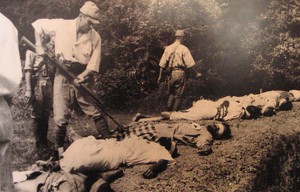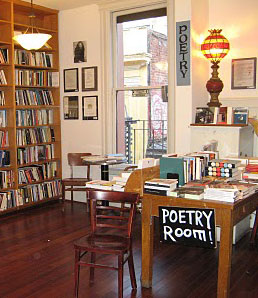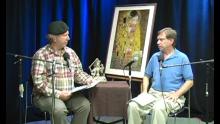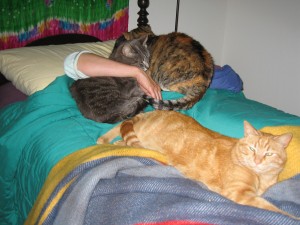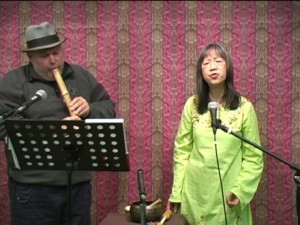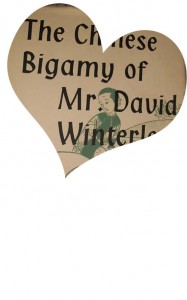
I’m scared of Chris Trian because he is big, tall and loud. When he stands up to read I imagine his mop of blond curls grazing the ceiling igniting fire. I am scared because Chris seems angry all the time. Except for sex, he blasts drugs, alcohol, God, Devil and Hell alike. Chris is not the cordial kind of guy who welcomes you to the Sacred Grounds poetry reading with open arms. He and his wife Dierdre occupy front row seats every Wednesday night. And if they come in late, somehow the seats are reserved for them.
I don’t remember how we get connected. I think Dierdre is the key. She is the witch with the pit bull and if you are nice to the witch, the pit bull won’t bite. When Chris turns off his poetry voice he is warm and gentle and sane. And as my anxiety eases I begin to hear his words, strong, no nonsense words that spew fiery imageries.
Chris brought his paintings to the SF Poetry Podcast TV Show. We mounted a different one for each of the taping segments. I listened to Chris without the distractions of noise and people and found myself reacting emotionally to his every word. We have great poets among us, writing with no recognition, struggling to make a living. Here’s Chris, a living example. Hear him and be moved.

